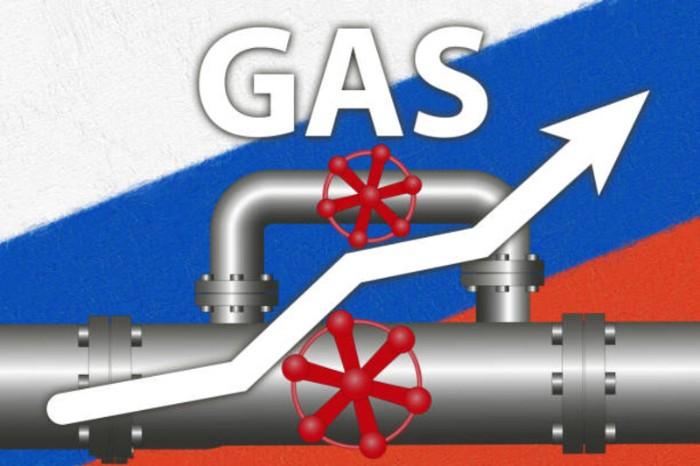Natural gas ETFs are exchange-traded funds that track the performance of benchmark indices associated with the natural gas industry. In recent years, natural gas has become an increasingly important energy source, with its usage growing rapidly in many countries worldwide. Natural gas ETFs offer investors a convenient way to invest in this sector, giving them access to the potential benefits of investing in natural gas.
How natural gas ETFs work
ETFs are investment funds that follow a particular index or collection of assets and can be bought and sold on an exchange, similarly to stocks. Natural gas ETFs typically track the performance of benchmark indices such as the NYMEX Henry Hub Natural Gas Futures Index. They may also follow the performance of individual companies within the natural gas industry or multiple related sectors (such as energy production and transportation). The returns on these ETFs depend largely on market conditions and other factors affecting the performance of natural gas stocks and commodities prices.
Pros and cons of investing in natural gas ETFs
Pros of Investing in Natural Gas ETFs:
- Diversification: Natural gas ETFs allow investors to diversify their portfolios by investing in a wide range of natural gas-related stocks and commodities.
- Accessibility: Investing in natural gas ETFs is relatively easy, as they are traded on stock exchanges like other stocks.
- Low Management Fees: Many natural gas ETFs have low management fees, making them a cost-effective way to invest in this sector.
- Leverage Potential: Investors can gain leverage through certain types of natural gas ETFs, allowing them to magnify their returns.

Cons of Investing in Natural Gas ETFs:
- Volatility Risk: Natural gas ETFs are subject to market volatility like any investment. Prices can fluctuate heavily depending on global economic conditions and geopolitical events.
- Complexity: Natural gas ETFs often track complex indices or baskets of industry assets, making it difficult for investors to understand how these funds work.
- Tax Implications: Tax implications may be associated with investing in certain types of natural gas ETFs, so investors should research this before investing.
Factors to consider before investing in natural gas ETFs
Factors to consider before investing in natural gas ETFs include:
- Market Conditions: Natural gas prices can be highly volatile depending on global economic and political conditions. Investors should research the market to ensure that investing in natural gas is right for them.
- Investment Objectives: Investors should clearly understand their investment objectives and goals when considering investing in natural gas ETFs.
- Risk Profile: Different types of natural gas ETFs may come with varying levels of risk. Investors should assess their risk tolerance and select an appropriate fund accordingly.
- Regulatory Environment: It is important to understand the regulatory environment surrounding natural gas ETFs to make informed decisions about investing in them.
- Performance History: It is wise to research the performance history of an ETF before investing, as past performance can provide insight into potential future returns.
- Expenses & Fees: Investing in natural gas ETFs typically involves paying various fees and expenses, including management fees, transaction costs, and other charges associated with trading. These should all be factored into the overall cost of the investment.
Top natural gas ETFs to consider

- United States Natural Gas Index Fund (UNG): This ETF tracks the performance of natural gas companies in the US, providing exposure to the spot price of natural gas. It has an expense ratio of 0.60%.
- Invesco DWA Natural Resources Momentum ETF (PXI): This ETF provides exposure to various natural resource stocks, including those related to the natural gas industry. It has an expense ratio of 0.60%.
- First Trust ISE-Revere Natural Gas Index Fund (FCG): This ETF provides broad exposure to different segments of the natural gas industry, such as producers and distributors, pipelines, and refiners. It has an expense ratio of 0.60%.
- Global X U.S. Oil & Gas Exploration & Production ETF (USOI): This ETF provides exposure to oil and gas exploration and production companies in the US, focusing on mid-cap and small-cap names. It has an expense ratio of 0.65%.
- Direxion Daily Natural Gas Related Bull 3x Shares (GASL): This leveraged ETF seeks to provide three times the daily return of the popular NYMEX Henry Hub Natural Gas Futures Index and is best suited for short-term traders looking for quick gains from price movements in natural gas prices. It has an expense ratio of 1.05%.
Conclusion
Investing in natural gas ETFs can be attractive for many investors looking to access this growing industry.Before investing in ETFs, it's crucial to comprehend the associated risks and analyze market trends and geopolitical factors to make an informed decision.Additionally, investors should research the top-performing natural gas ETFs and compare their performance and features before investing.
FAQs
What advantages come with investing in natural gas ETFs?
A: The main benefits of investing in natural gas ETFs include access to a broad sector, low management fees, and potential for leverage.
Q: Are there any risks associated with investing in natural gas ETFs?
A: Risk is associated with investing in natural gas ETFs, including volatility risk, complexity, and tax implications. Investors should research these before making an investment decision.
Q: How do I choose the best natural gas ETF?
A: It is important to compare different funds based on their performance history, fees and expenses, and other features before making an investment decision. Additionally, investors should assess their risk tolerance and investment objectives when selecting an ETF.
Q: What are the top-performing natural gas ETFs?
A: Some top-performing natural gas ETFs include the United States Natural Gas Fund (UNG) and iShares Global Clean Energy ETF (ICLN). Investors should compare these funds in terms of their performance, fees, and other features before making an investment decision.
Q: What are the tax implications of investing in natural gas ETFs?
A: The taxation of natural gas ETFs depends on the fund type and how long an investor holds their investment. Generally, income from dividends and capital gains are taxed at different rates, depending on the holding period of the investment. In addition, investors should be aware of any state or local taxes that may apply to their investments.



